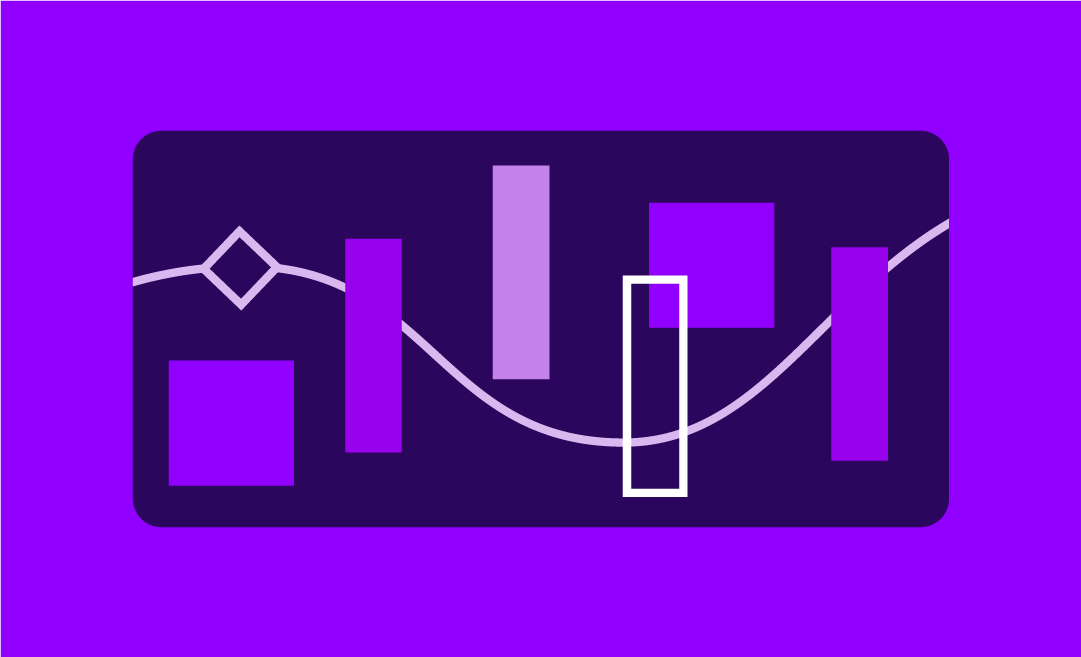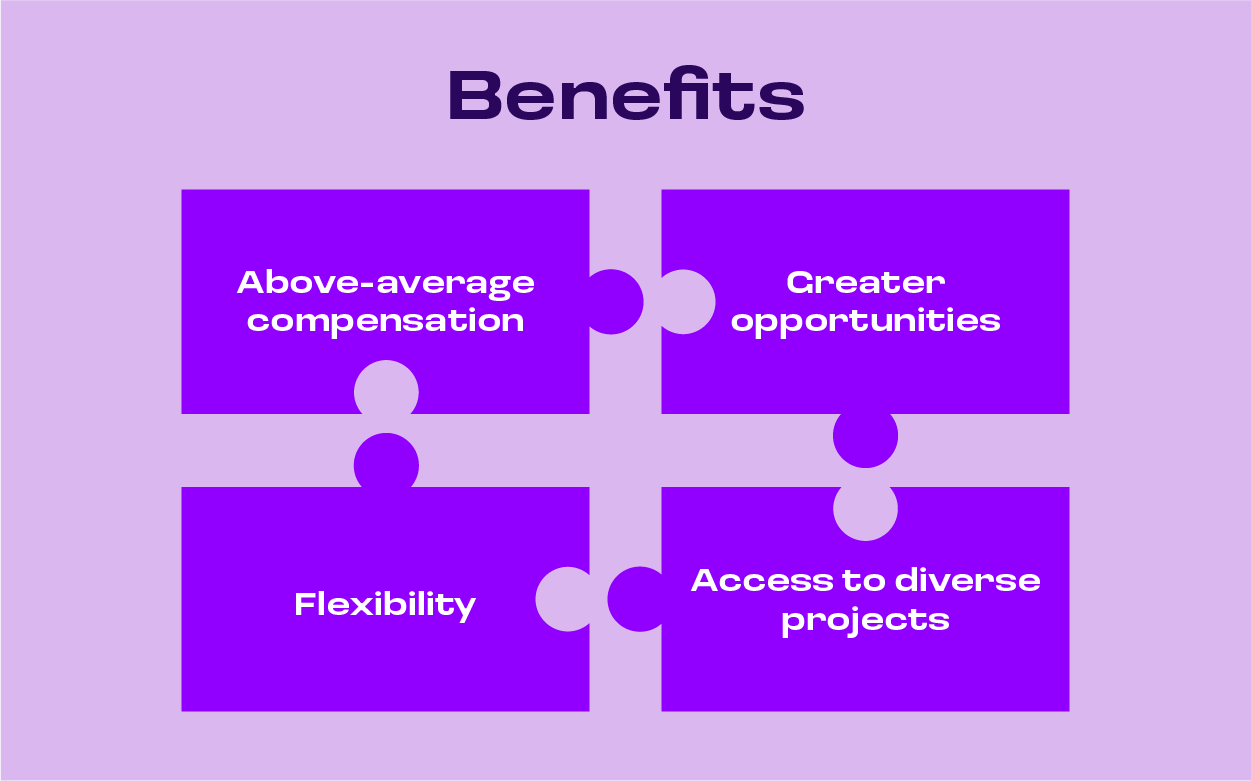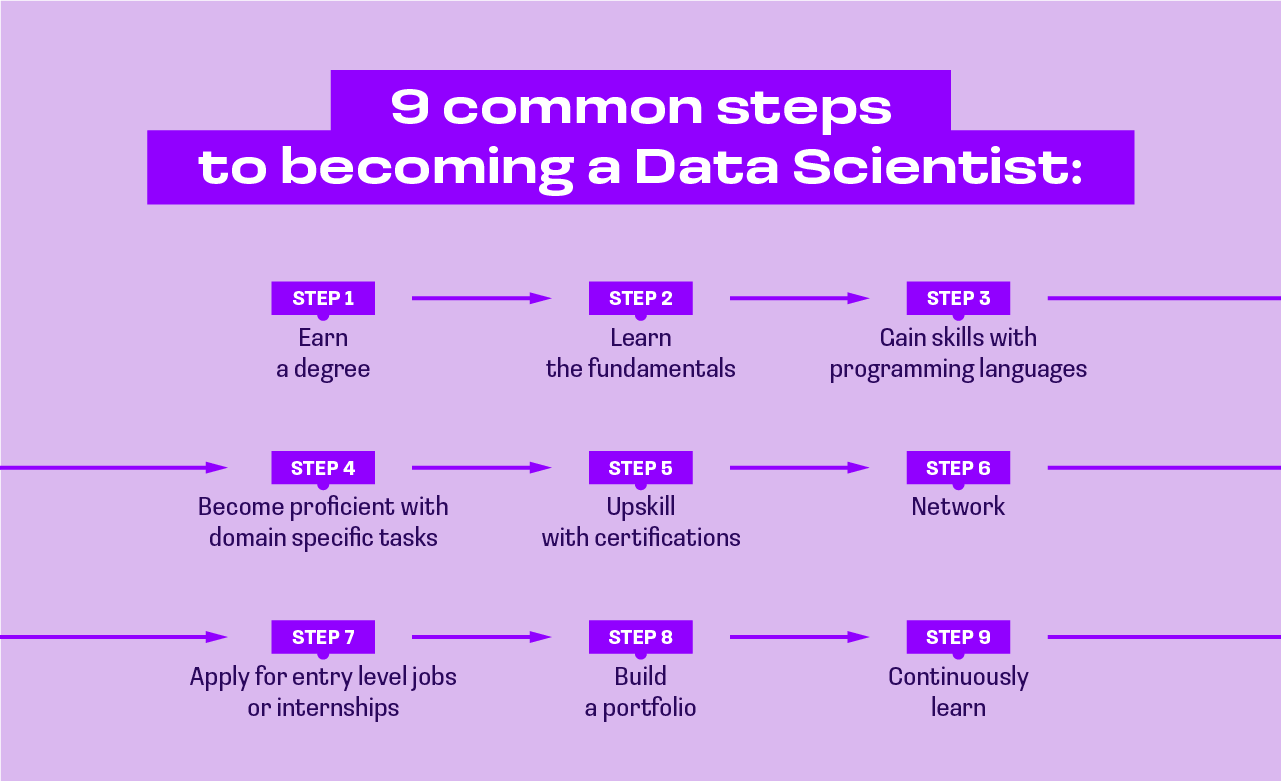Charting Your Data Science Career Path: From Novice to Expert
The author of this article is tech expert Pieter Murphy.

Data science offers a unique and exciting career trajectory. As the value of data expands, the opportunities available to analysts have grown. Whether you assist with diagnosis in healthcare or manage a tech startup, you can join a stimulating and diverse field.
However, since data science is a complex industry that covers a wide array of job and role types, there can be several barriers to entry that can delay your data scientist career path. Let's outline all you need to know about the data science and analytics career paths, that way you have a simple roadmap for achieving your professional goals.
Why choose a career in data science?

First, you need a reason for entering the field. You could use your skills and follow a more traditional route as a software engineer. But the career path of a data scientist holds a few benefits that may help you make your decision:
Compensation: Information scientists are paid well for their work. The average salary starts at $103,500 per year, with plenty of additional opportunities to improve your total take-home pay (such as seniority, skill, work history, etc). The career growth in data science is rapid, and that demand will likely drive above-average compensation.
Greater opportunities: Data science is an intellectually challenging field. That does create higher upfront investment requirements in education and upskilling. But it also means you have a very high ceiling for your professional development and an abundance of opportunities once you have an excellent resume.
Access to diverse projects: Data science also encompasses a range of roles within many different industries. You can focus on machine learning, work on projects in health care, or spend more time as an entrepreneur with an industrial startup. The variety of jobs and possible work options entice many analysts and engineers into a career switch.
Flexibility: After the changes regarding work conditions during the pandemic, many engineers now engage in more flexible manners of work. You can choose between remote offices, outsourcing, or full-time foreign work positions. Due to the tech-first nature of the job, information analysts can create better work-life conditions.
Requirements to become a data scientist
So what exactly do you need to start your career path to a data scientist? In truth, there are numerous pathways to achieve your goals. You do not need a prescribed set of specific requirements to land a job. But while not officially demanded, there are several “must have” qualities that most companies will expect from each job candidate:
Education expectations: Most job descriptions want a degree in a related field. A Master's degree and Doctorate are a bonus but not required. Be sure to demonstrate relevant skills and academic credentials earned from a certified institution, ranging from mathematics, statistics, and probability.
Certification expectations: Some recruiters will validate your skills by requesting proof of specific certifications. The type of certification requested will depend on your goals, industry, and field of interest. For example, if the job description for a junior data scientist emphasizes IMB Watson, you will likely need the IBM Data Science Professional Certificate.
Skill expectations: You will likely need a diverse set of technical skills and domain-specific competencies related to your chosen industry. Ability with Python, R, SQL, Matplotlib, Power BI, Excel, and Hadoop is not required, but you will have an exceedingly hard time landing a job without these core competencies.
Experience expectations: Previous work history will take on greater weight if you apply for senior positions or roles in management. But even entry-level jobs will want you to have experience with data manipulation, analysis, and programming frameworks. If you are just starting your career development plan for a data scientist, gain that experience through an educational background, internships, and boot camps.
9 steps to get into a data science career

Of course, best data science career path will be unique to your background and competencies. and while there are multiple routes to gain the knowledge and skills needed to excel, there are several common steps most analysts follow:
1. Earn a degree
First, it is a good idea to attend post-secondary education. It is possible to land a job without a degree from a certified institution, as there are many alternative learning options. Still, the majority of applicants have at least a bachelor's degree. And many organizations demand a baccalaureate in statistics, mathematics, or computer science. Simply put, a degree is usually necessary to break into the field. To gain the needed skills and surpass entry-level job requirements, attend higher education.
2. Learn the fundamentals
There are numerous career options in data science, each with specific skill demands. But such advanced techniques rely on core foundational concepts related to statistics and probabilities. You will need practical ability with the basics of handling data and engaging in analysis (e.g. be able to explain what is data science).
Learn those fundamentals through practice and by using data science materials for self study. Get comfortable with analysis libraries such as pandas, NumPy, and Matplotlib, and spend as much time as possible getting comfortable with data manipulation.
3. Gain skills with programming languages
Next, get to work with a programming language (Python is one of the most popular in the industry). Without some level of coding, it would be nearly impossible to analyze large datasets. You will also code models, deploy algorithms, and automate processes (tasks completed through the use of a programming language). R, SQL, and Java are additional programming languages that will be exceedingly useful throughout your career path in data science.
4. Become proficient with domain specific tasks
With the foundational principles covered and a good handle with programming languages, place your focus on more niche skills. Case in point, an engineer will perform Extract, Transform, and Load (ETL) processes while a business analyst engages in data visualization. Once you know what field of data science you want to enter, learn the tools specific to that domain.
5. Upskill with certifications
There are numerous courses and credentials you can attain. These boot camps not only further your technical skills but can make your resume stand out from the crowd. In addition, some companies may expect certifications in order for you to earn the job. For example, a large-scale enterprise with a company-wide focus on Azure may demand that you possess a Microsoft Certified: Azure Data Scientist Associate certification. And since data science is an innovative and ever-changing career, this type of professional development will occur throughout the entirety of your data science career ladder.
6. Network
If you want to see rapid data science career growth, then you need to engage with the community. The career progression for a data scientist can be a tough road, so it is a good idea to access plenty of mentorship opportunities and first-hand advice from those working in the field. Be sure to go to networking events and conferences when possible. You can also join online communities to ask questions and find more resources. Many of the connections you make here can lead directly to a job.
7. Apply for entry level jobs or internships
The data science career prospects are excellent, but since it is a knowledge-intensive field, breaking into your data science career track can take some time. And while you are learning and studying, you could benefit from practical hands-on experience. That’s where an internship can be a valuable stepping stone. Get your foot in the door and get to work in the real world. And if you meet the job requirements, entry-level jobs are also an excellent way to kick off your career path in data science.
8. Build a portfolio
After gaining experience working on a few projects, build a portfolio. A portfolio will help you land the gig as you progress and advance through your data science career options and move into roles with greater responsibilities. It profiles to recruiters your previous successes in granular detail. Outline exactly how you approach your role and how you will drive value in a new position or company. The average data scientist career progression is rarely linear, so keep a readable and detailed history of your trajectory in a portfolio. And prepare to answer data science technical interview questions.
9. Continuously learn
Lastly, commit to staying relevant. The industry continues to grow, and that will require new skills. You will also need different abilities as you work on unique projects with new demands and expectations (e.g. if you shift into Big Data, that will require expertise with Hadoop, something you may not have focused on previously). And don’t forget that you will make your way up the ranks toward senior or expert levels, which have different skill requirements, such as leadership or management talents. Continue your data science career development as you achieve seniority in the field.
Job roles in data science
While entry into the data scientist career roadmap follows a common trajectory, the guiding details will change depending on your specialization. An efficient career will naturally place more focus on the skills needed to achieve the goals specific to your career path. Here are some of the possible role types and the skills you should emphasize:
Data analyst: Analysts focus on the interpretation of collected datasets. You will need skills in statistics, visualization, and reporting.
Machine Learning (ML) engineer: An ML engineer creates machine learning algorithms. Focus on predictive modeling, deep learning, and recommendation systems.
Data engineer: Engineers construct architectures. Make sure you gain skills in data mining, retrieval, and processing.
Business analyst: A business intelligence analyst takes raw information and presents it as usable insights for company stakeholders. Reporting, visuals, and the IT language of data analysts take on greater importance.
Architect: An architect designs and manages the overall vision of an enterprise infrastructure. A wide range of knowledge over several data science domains (coupled with leadership ability) are necessary skill sets.
Data scientist salaries
Currently, there is a talent shortage. Data scientists are in high demand, and that pushes salaries higher. Moreover, the industry is expected to grow 35% by 2035 — compensation is much higher than the average.
As noted above, the Bureau of Labor Statistics lists a median salary of $103,500 per year, or $49.76 per hour. Other employment platforms note higher overall annual pay. For example, Glassdoor reports a range between $130,000 - $190,000 per year. Indeed shows yearly base pay starting at $124,995, without including additional benefits such as healthcare, 401k contributions, or bonuses. At the same time, an L7 DS at Amazon can pull in upwards of $600,000 in total compensation.
Numerous factors will affect your total compensation. Location, work type, role, education, and experience can all improve your take-home pay. Regardless of the current stage you occupy in your career roadmap, the career path for a data scientist is well-paying and potentially lucrative.
Job prospects for data scientists
The occupational outlook for new analysts and engineers is excellent. The U.S. Bureau of Labor Statistics projects 17,700 openings per year on average over the next decade. Upward mobility is also quite high. Moreover, use cases for data scientists continue to expand, especially as big data and the value and pace of collected information rapidly grows. Enterprises need skilled workers to fill the current talent gap.
Conclusion
The complete path to a data scientist job is a rewarding journey. You will have the chance to engage in novel projects, work with excellent engineers and analysts, and learn multiple new skills. And if you take advantage of the tips and tricks outlined in this article, you’ll be well on your way toward an exciting career.
Want more details on developing your data scientist roadmap? Head over to the AW club, where we have education resources and a vibrant community of engineers to help you jumpstart your career.

.png)
